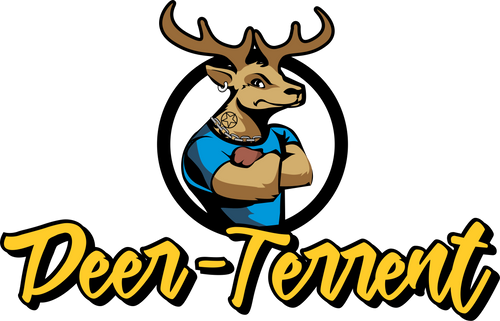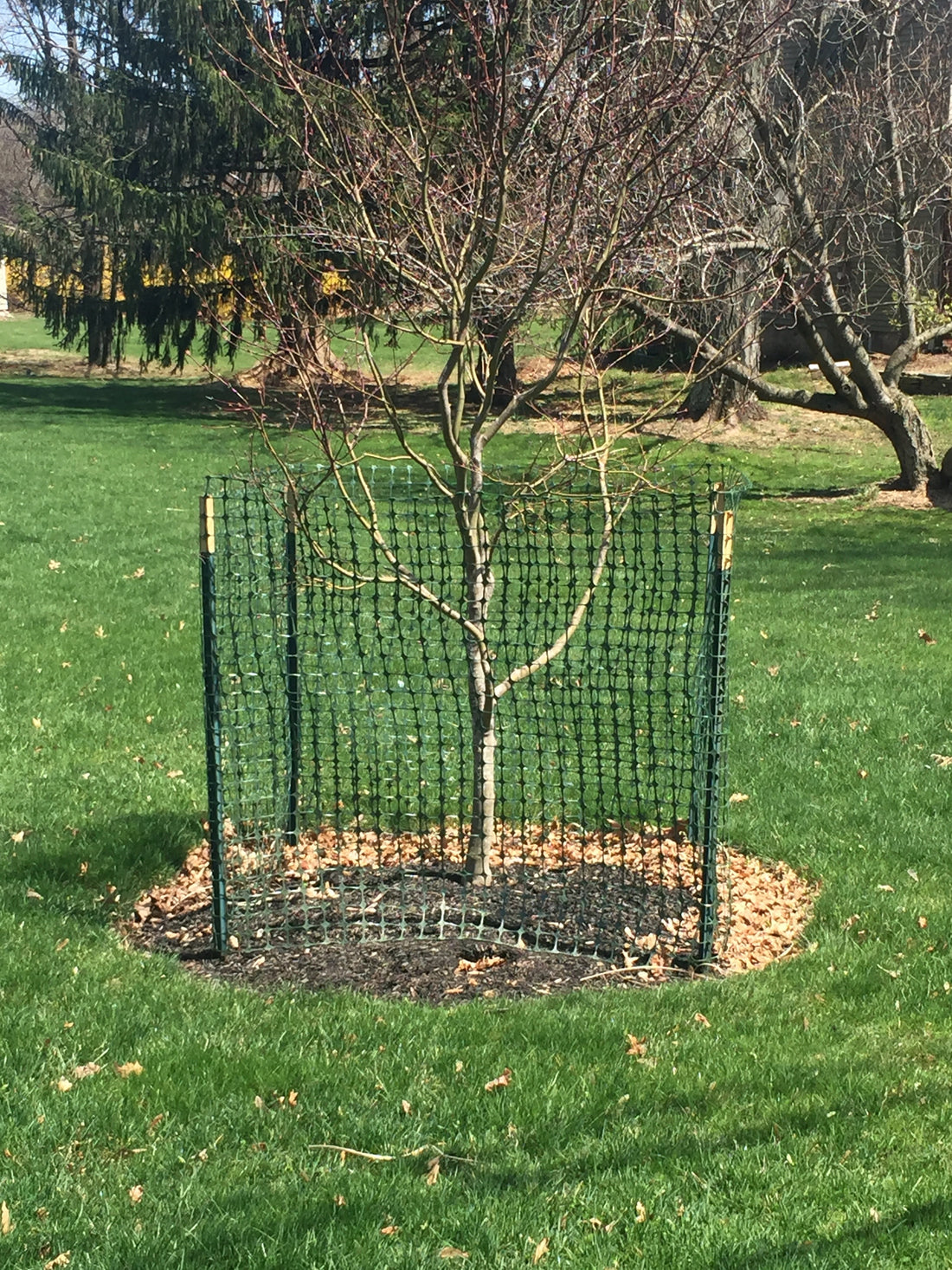What people refer to as deer netting is actually deer fencing. Deer fencing needs to be staked into the ground as a permanent installation or at a seasonal installation. A seasonal installation will be in the autumn and removed in the late spring. Deer fencing is a black plastic material that is quite rigid in its construction. It works well as fence but is not intended to be directly applied to shrub or a Thuja, which is more commonly referred to as an Arborvitae. This type of black deer fencing will not conform to a plant's natural contour and shape due to its heavy construction.
Deer Fencing will work well when there are long rows of Arborvitaes or similar plants that need protecting. This is especially true during colder months or when the growing season has ended. The drawbacks of using deer fencing are- 1) It is labor intensive to install. 2) Since it is labor intensive, most people will keep it up year round, making it a permanent structure on your grounds. 3) It can be unsightly since it is so visable. 4) Difficult to trim and remove weeds.
Deer netting is a lightweight, yet strong material that resists a deer bite to protect the plant. Deer-Terrent offers 5 different netting barriers that are effective in protecting your plants from deer. Deer-Terrent can be applied and removed quickly. Most people will remove their Deer-Terrent netting when the growing season starts and will reinstall it when the autumn approaches.
Deer netting, due to its lightweight construction and green color, also blends into the plants natural contours. This allows for a more visually pleasing feature when compared to the rigid deer fencing.
One last note to mention is that most deer will not spend the time or have the ability to chew through polyethylene netting. However, deer fencing and deer netting can be chewed by squirrels, rabbits and ground hogs.

